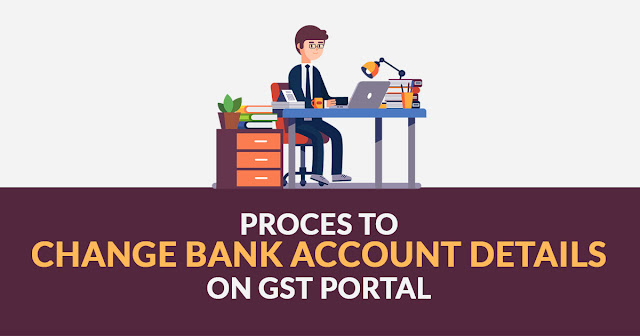At the time when the GST registration was done, the prerequisite for bank account-related details had been withdrawn since the bank account cannot be opened before the start of the business. The Bank account information might be added by changing the non-core area.
Following are the steps to change the Bank Account details on the web portal of the GST
- Log on to the web portal of GST
- Then Go to Services
- Thereafter Click on Registration
- Then Click on the tab Amendment of the Registration non-core field
- In the fifth step Select tab Bank Accounts
- Then click on the Verification code
- In the Seventh Step, Select Authorised Signatory
- Then Enter a Place
- Sign the application using the Digital Signature Certificate (DSC)
- Finally E-sign or EVC
Consequently, a success message shall pop up on the screen and the copy of acknowledgment shall be sent to the registered email id and the mobile phone.
How to Add Bank Details?
- In order to add the bank details on the web portal of GST,
- Login with the credentials to the GST web portal.
- Then click on the Services tab from the main menu and
- Thereafter, under the services tab
- Click on the Registration Tab under the services
- Finally, click on the ‘Amendment Of Registration Non-Core Fields’.
It is worthwhile mentioning here that the registration of GST is totally dependent on the PAN number, so any change later on to the specifics of the PAN card is not possible.
Some Don’t
Changes in the structure of the company are not feasible as it necessitates a shift in the PAN number in the first place. And
It is further not possible to change the location of a state as the GST registration is state-specific


Comments
Post a Comment